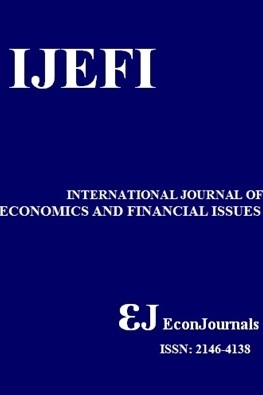International Financial Reporting Standards Convergence and Quality of Accounting Information: Evidence from Indonesia
International Financial Reporting Standards Convergence and Quality of Accounting Information: Evidence from Indonesia
International Financial Reporting Standards Adoption, Earning Quality, Earning Per Share, Book Value Per Share,
- Başlangıç: 2011
- Yayıncı: İlhan ÖZTÜRK
Nitya Nand TRİPATHİ, Naseem AHAMED
How Does Volatility of Characteristics-sorted Portfolios Respond to Macroeconomic Volatility?
Ahmed Al Samman, Mahmoud Moustafa Otaify
The Effect of Palestinian Banking Credit Facilities on the Palestinian Economy
Lya Paola SİERRA, Luis Eduardo GİRÓN, Carolina OSORİO
The Effect of Ownership Structure on Cash Conversion Cycle in Listed Firms on Tehran Stock Exchange
Elaheh JAVADİ, Hashem NİKOUMARAM
Demographic and Competitiveness Acceleration and Government Sustainable Advantage in Indonesia
Omas Bulan Samosir, Wilson Rajagukguk
Determinants of Growth in SADC Countries: A Fixed Effect Vector Decomposition Approach
Mduduzi Biyase, September Rooderick
Forecasting Gold Price with Auto Regressive Integrated Moving Average Model
